
Featured Posts
Deep-Fried Turkey: A Thanksgiving Innovation Story
On Thanksgiving, Donna and I typically do four turkeys, all deep-fried. We used to do one regular, oven-cooked turkey to get dressing, but who needs dressing when you can have more deep-fried turkey instead? The only downside to deep-fried turkey (besides the Darwin Awards folks who manage to blow things up) is how expensive the peanut oil is—$50 for three gallons of oil is outrageous.

Horror’s Hidden Genius: What Special Effects Can Teach Us About Innovation
Special effects turn movies into magic, tricking us into believing that what we see on the screen is real. From convincing gore to alien monsters, special effects designers are constantly coming up with new ways to shock and scare us..
They Stole His Invention, So He Fought Back
In 1953, on his wedding night, Robert Kearns popped a celebratory bottle of champagne in his hotel room. The cork flew into his left eye, leaving him legally blind in that eye. A decade later, this unfortunate accident became the inspiration for an invention we still use today...

The Curious Case of the Segway: A Visionary’s Ride to Reality (and Back Down Again)
Like many kids, when Dean Kamen was young, he did not enjoy making his bed each morning. Unlike most, he decided to do something about it. At just five or six years old, he devised a system of pulleys so that he could roll out of bed, pull on a few ropes, and have his bed made...

Case Study: No Refrigerator, No Problem—Keeping Soda Cold in 110°F Heat
For more than one hundred years, a war has been waged. You may have never heard of its name, but you have almost undoubtedly been an unwitting participant. The war began in the United States but has since spread across the globe, with billions of dollars at stake....

Top-of-the-Funnel Serendipity: A 3-Step Secret to Good Luck
In my last blog, I discussed the invention of the Post-it note, which came about after 3M scientist Dr. Spencer Silver stumbled upon an adhesive that was not very sticky. That “failed” glue was not what he was looking for at the time, but he recognized that it could be a useful solution—if they could just find the right problem...

The Unexpected Question We Ask Start-Up Innovators
There’s one question we ask, though, that often throws people for a loop: How are you going to sell your product? We mean this question practically, not theoretically. It is not a question about marketing or consumer behavior, but a question about distribution. Logistically, how will you sell your idea? What distribution channels will you use to get your product into consumers’ hands?

5 Manufacturing Questions to Ask NOW, Not Later
For an innovation to be considered successful, you must sell it, and to sell it, you must manufacture it. Too often, though, manufacturing is treated as an afterthought in the innovation process. Many innovators don’t think about it until they have a working prototype and are ready to begin mass production.....

Ready to Manufacture Your Innovation? 3 Tips to Protect Yourself
A friend of mine designed a split-vamp tennis shoe with two sets of laces, a lower and an upper set. Cheerleaders in particular loved the shoes. With the jumps, tumbling, and stunts they do, a securely fitting shoe is vital, and having two sets of laces allowed them to customize their fit...

2 Brainstorming Exercises to Boost Innovation
2 Brainstorming Exercises to Boost Innovation. Every innovation begins with an idea. At PCDworks, in our Immersive Innovation™ sessions, we guide participants through two to three days of brainstorming to discover potential solutions to their identified problem. Through experience and real results, we’ve identified several exercises that reliably increase creative thinking. In this article, we’ll share two of our favorites...

The Scientific Reason That Rest Can Increase Innovation
Have you ever struggled with a problem and been unable to come up with a solution, then hours or even days later, the solution came to you like a light bulb? Maybe you were in the middle of a completely unrelated activity, like driving your commute, walking, or exercising. You weren’t consciously thinking about the problem, but your brain came up with a solution anyway....

What Makes PCDworks Unique?
What Makes PCDworks Unique? Innovation is the lifeblood of a company, the most competitive advantage you can have, but it is difficult to do and even harder to do well. According to McKinsey & Company, 84% of corporate executives believe innovation is critical to achieving growth objectives. But only 6% are satisfied with their company’s innovation performance.....

What Architecture Teaches Us About Innovation Environments: Firmitas, Utilitas, and Venustas
From LEGO Futura (LEGO’s product development department) to the 3M Innovation Center to big tech campuses stocked with slides, gyms, and nap pods—people have long sought the secret to building an innovation environment...

The Plague of Whimsy in Innovation
A corporation with a strong focus on innovation was looking to relocate out of Seattle. An internal team was tasked with identifying the ideal cities based on a number of factors: cost of rent, availability of talent, proximity to key suppliers, etc. They narrowed the search down to about five options and, research in hand, presented their findings to the CEO...

An Innovation Lesson from Thomas Edison
Thomas Edison famously said, “Genius is 1 percent inspiration, 99 percent perspiration.” The same is true for innovation, because innovation is simply genius applied to the world’s problems. This quote is more than a pithy saying you might hear from a motivational speaker. It’s part of the foundational mindset necessary to be a successful innovator. To get the most value from Edison’s genius ratio, you need to dig beyond the surface...

The Patent That Never Was: An Innovator Origin Story
I’ve worked in innovation for more than thirty years now, and I have more than forty patents to my name. I can confidently call myself an innovator. Looking back, though, the moment I became an innovator was actually long before my first job in innovation and before my first patent. My innovator “origin story,” so to speak, started with lasers...

The Innovation Hesitation Mindset
In fables and fairy tales and most novels, there’s always an antagonist. For now let’s call them the Big Bad Wolf, a clear antagonist that must be reckoned with. Always, the first step to defeating the Big Bad Wolf, as Little Red Riding Hood would tell you, is recognizing it.

The Psychology of Problem-Seeking: Why It’s So Hard to Find a Good Problem
The Psychology of Problem-Seeking: Why It’s So Hard to Find a Good ProblemProblem-seeking is the single most important step of innovation. Without a good problem, nothing else matters. It’s stupid to waste your time (and money) solving problems that are not important. It is the surest way to go belly up as a company. Yet people do it all the time. Why? Because they’re idiots, of course. But only in the way that we are all idiots...

Innovative Problem-Solving Starts with Problem-SEEKING: So Whose Job Is It?
One of the most valuable lessons I’ve learned about innovation came from a group of college kids. I was teaching an industrial design course, and on the very first day, I gave them an assignment: “Go home and ask your family, ‘What makes your life crazy?’ Then think about how you could solve that problem.”They came back to class with all sorts of ideas, from special blenders to a hair bonnet that let you comfortably sleep with rollers in your hair...

Get Your Company to Invest in Innovation: 3 Strategies for Success
What do NASA, a hydraulic fracturing company, and a steel fabricator have in common? When faced with a problem, they knew they needed to innovate. What’s more, they were able to convince the powers that be—the decision makers that control the purse strings—to invest the needed resources to develop that innovation....

Get Ready to Fail: The 3-Step Learning Cycle of Prototyping
In the early 1900s, Thomas Edison and his researchers were trying to develop a new kind of battery. They had been working on the problem for more than five months when Edison’s long-time associate Walter S. Mallory came to visit. As Mallory recounted, he found Edison at a long bench covered with hundreds of test cells. The researchers had done more than 9,000 experiments with such cells, but still they had not found a working solution...
If You Skip This Step When Prototyping, You’re Doing It Wrong
You’ve identified a problem that needs to be solved, and you’ve brainstormed potential solutions, narrowing them down to one that seems promising.So now what? How do you get from a hypothetical solution to an actual product? ... It’s time for prototyping!

8 Questions to Mitigate the Risk of Innovation
8 Questions to Mitigate the Risk of InnovationThere’s a big, obvious reason more companies don’t innovate: risk. Too often, people’s advice is to embrace risk, which is basically like saying, “Oh, you’re scared of risk? Well, stop being scared of it.” As if that’s going to help. Instead of embracing risk, what if we mitigated it? Starting from scratch to releasing a viable new product in the market, what do you think the probability of success is?

American Innovation Is Broken: Here’s Why
The Telegraph. The telephone. The incandescent light bulb. The airplane. What do they have in common? All were created or made practical by American inventors. Throughout the late nineteenth and early twentieth centuries, America was the undisputed world leader of innovation. Today, we have lost that title. For thirteen years in a row, Switzerland has dominated the #1 spot in the World Intellectual Property Organization’s Global Innovation Index. The United States has been bumped back to #3, behind Sweden, with China closing in at #12 in the world............

Revitalizing Our Community: The East Texas Technology and Innovation Coalition (ETTIC)
In 2021, 11.6 percent of people lived below the poverty line in the United States. In Palestine, Texas, the home of PCDworks, a staggering 18.8 percent of the population lived below the poverty line, which is, simply put, too many. East Texas, particularly Anderson County, has long faced economic....

The Special Sauce of Innovation: 3 Key Traits
By Mike Rainone ~ In theory, anyone can innovate. In practice, few do. What sets the innovators apart? At PCDworks, we’re in the business of innovation, which means we’ve had to learn how to identify innovative minds. Usually, when hiring, people look at resumes and past experience. Innovation is hard to quantify, though. It is not simply an action, but a mindset—a way of thinking and looking at the world. In my experience as co-founder, instead of relying on resumes, you need to look deeper, at core character traits. If you want to innovate, you need curious generalists who aren’t fatheads. That’s the special sauce.

Start Innovating in Just 3 Days with Immersive Innovation
Almost every company wants to innovate (or at least says they want to innovate), but too many make the mistake of expecting innovation to just happen on its own. If you want innovation, you have to drive it. The good news is you can start driving innovation in just three days. At PCDworks, we have developed a tried-and-true process we call Immersive InnovationTM. The process itself is simple. Read on to learn how.

AI vs. Human: The Complexity of the Human Brain
We’re big science fiction fans here at PCDworks. Our founder and chief innovation officer Mike Rainone once made his son a replica of a phased plasma rifle from Terminator for Halloween. Despite being made out of wood, it was so realistic people stopped them and checked to make sure it wasn’t real!

Less Is More: 3 Benefits of Small Teams for Innovation
The Marine Corps has about 180,000 active personnel and an annual budget of about $50 billion. So why would they come to a company like PCDworks, with a staff of only 10, to solve their problem? They came to us not despite our size, but because of it.

Redefining Problem-Solving the PCDworks Way
The art of problem-solving, especially when it relates to innovation, requires diverse perspectives and approaches. When we innovate solutions to difficult problems at PCDworks, we pay special attention to fundamental research and functional decomposition. It’s not as complicated as it sounds:

Client Chemistry 101—Are We the Perfect Match?
If you’re looking for a creative collaborator to help bring an idea to life, you must do what you can to ensure it’s a great match. Launching a business or new product line is challenging enough. Make sure you have a partner by your side who complements your strengths and compensates for your weaknesses.

From Constraint to Creativity: Overcoming the Brain's Barriers
At PCDworks, we love to nerd out over how our brains work, for obvious reasons. An enlightening episode of PBS NOVA highlights a key concept that guides our Immersive Ideation™ sessions: The brain's self-monitoring function is crucial for everyday life, but it also places a leash on our creativity.





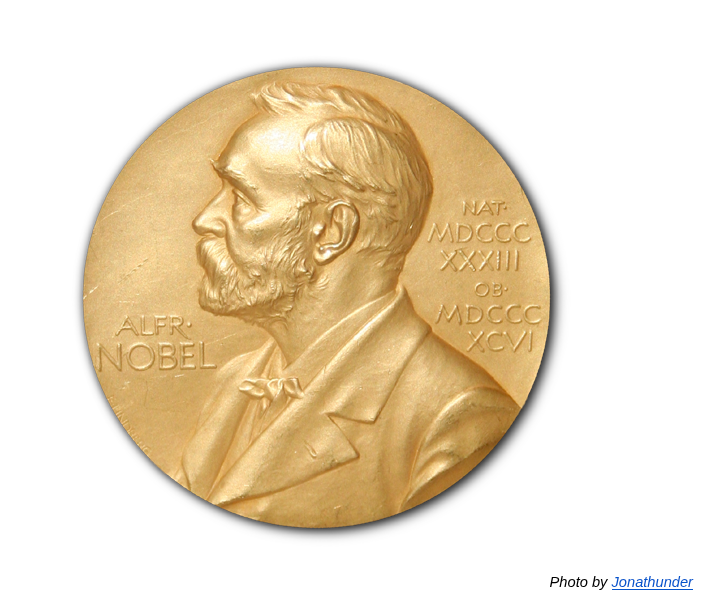




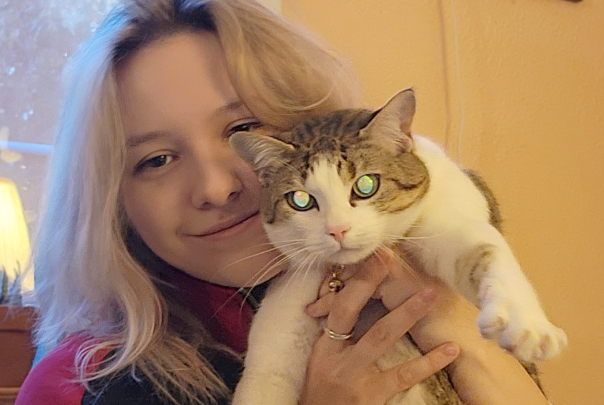




















.jpg)



